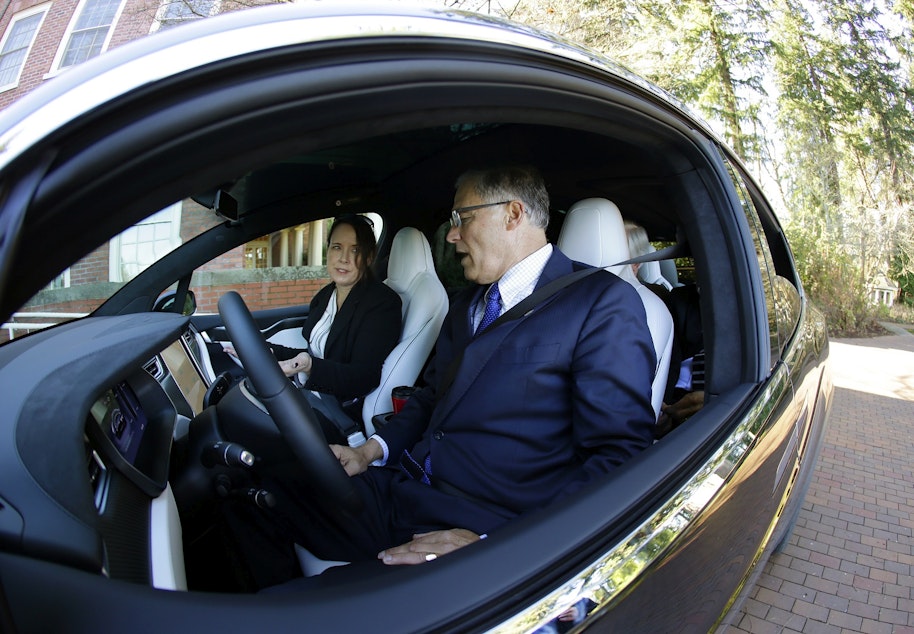Tax breaks for green cars: helping the climate or the wealthy?

Gov. Jay Inslee wants more Washingtonians to drive electric vehicles to reduce our impact on the climate. To date, these vehicles have mostly been pricey luxuries enjoyed by people with money to throw around.
Can government boost electric vehicles without widening the gap between rich and poor?
Washington state used to give tax breaks to buyers of electric cars, no matter how much they cost.
So if you could afford a Tesla for a mere $90,000 or so, the state would take care of the sales tax for you, a $6,000 or so benefit.
The federal tax break of up to $7,500 for an electric vehicle provides larger benefit to people with larger income taxes to pay or deduct from.
Washington state currently has no tax breaks for electric cars, but the Legislature is looking at offering new ones. This would be a flat $1,000 tax break, and luxury cars over about $45,000 wouldn’t qualify at all, under current proposals.
Sponsored
The idea is that the cost savings might make the difference for consumers on the fence about buying an electric car.
"My difficulty in hitting go is the sticker shock of the monthly payments," Barbara Smith of Olympia told KUOW on Facebook after we asked what prevented drivers from switching to electric cars.
She said for now, she's sticking with her 14-year-old Subaru, even though it gets 18 miles per gallon.
Sponsored
“I would probably seriously consider it anyway," said Geri Evans outside an electric-vehicle workshop in Tacoma. Evans is a part-time property manager. "Without that, I might lean more toward, like, the Subaru Outback or a Honda CR-V.”
Evans said she drives a Chrysler with a large, V-8 engine now and wants to pollute less.
“We need to do some things now if we're going to save the planet for future generations or have a planet worth living on,” she said.
Sponsored
Gov. Inslee is proposing to include used electric cars in the tax breaks, so people who can only afford a cheap car might be able to give up their gas guzzlers too.
One dealer of used electric cars in Seattle has them starting at $6,000.
The average price of a new car in the U.S. was $36,590 in February, according to Kelley Blue Book.
“Every electric vehicle that a Washington consumer buys has benefits for everyone, especially low-income people, who are likely to live in places that are most vulnerable to auto pollution,” said Reed Schuler, an adviser to Inslee.
Conservative critics say the tax breaks are a costly way to reduce carbon emissions.
Sponsored
“Giving a $1,000 tax break to wealthy EV buyers won’t increase EV sales,” said Todd Myers of the free-market Washington Policy Center by email.
Some advocates say the proposed state tax breaks are too small to get enough polluting cars off the roads to make a difference.




